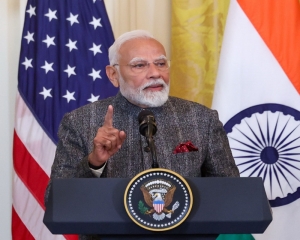The National Anti-profiteering Authority will live on as a part of Competition Commission of India
The Government has given the Competition Commission of India (CCI) the mandate that the National Anti-profiteering Authority (NAA) enjoys. The reason is that the NAA will cease to exist by the end of this month. The NAA has a mandate to ensure that reductions in goods and services tax (GST) are passed on to consumers. It was meant to check any profiteering by businesses; hence the name. The decision is reportedly in accordance with a recommendation by the GST Council, which has representation from the Centre as well as state governments. So now, even as the NAA will cease to exist, its work will be carried out by the CCI mandarins. Right from the beginning—that is, 2017 when the NAA came into being—it was an affront to the business class. In fact, the very word ‘profiteering’ has a ring of dirigisme around it; this is the reason that Leftists use it quite often. It presupposes that all businesspersons are unconscionable, blood-sucking villains who exploit their employees and fleece their customers. Added to the malice is the erroneous notion that government can control or check prices by coercive means. Right from the brutal regime of Alauddin Khilji to the pre-1991 days of Nehruvian socialism, such controls were put in place; they never brought any relief to the man on the street; invariably they led to shortages, black-marketing, and corruption. One of the most anti-business decisions in the last few years has been the setting up of the NAA.
It was supposed to complete its work of monitoring GST rollout in two years, so it was given a two-year term. But that was not to be. As the famous economist Milton Friedman said, nothing is so permanent as a temporary government programme. The NAA kept getting extensions; what was supposed to die in 2019 is still alive—and will remain so. It needs to be mentioned here that it is not just the Narendra Modi Government that is responsible for the perpetuation of a price control mechanism; the entire political class is involved in it, for the GST Council includes various states. The NAA perpetuation highlights a disturbing fact: our political masters have little faith in economic reforms. What liberalisation they have carried out in our country, they have done under compulsion, not by choice. This is not surprising, for liberalisation is essentially the process of the retreat of the State from the processes of economy; it involves less regulation, less intervention in the market. While all this is good for the economy and the people at large, it is not so good for politicians and a section of intellectuals who are ideologically wedded to the theories which are predicated upon the big State. Besides, there are a lot of people—bureaucrats, economists, technocrats, et al—who grew up reading and internalising Leftwing books. This is the reason that Leviathan marches on and abominations like NAA never die.



























